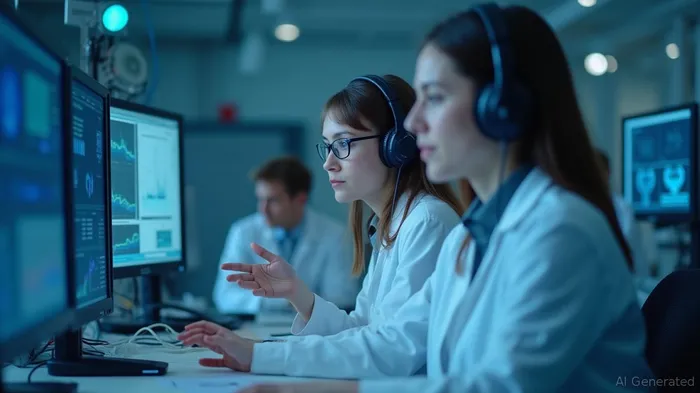Microsoft AI Tool Diagnoses 85% of Complex Cases Accurately
Microsoft has made a significant claim regarding the capabilities of its AI diagnostic tool, the MicrosoftMSFT-- AI Diagnostic Orchestrator (MAI-DxO). According to a blog post by Harsha Nori, head of AI at Microsoft AI Health, and Dominic King, VP of Health at Microsoft AI, the tool has demonstrated the ability to diagnose complex medical cases with four times the accuracy of human physicians. The AI tool, which simulates a panel of physicians and is trained using the standard Medical Licensing Examination, was able to correctly diagnose 85% of over 300 real-world cases. This was achieved after both the AI and the physicians were given the opportunity to ask questions, order tests, and finalize a diagnosis.
The blog post highlights that MAI-DxO can blend both breadth and depth of expertise, demonstrating clinical reasoning capabilities that exceed those of any individual physician across many aspects of clinical reasoning. The tool is designed to be a complement to doctors and other health professionals, rather than a replacement. Microsoft emphasizes that doctors' ability to navigate ambiguity and build trust with patients and their families is not something AI can replicate.
The rise of AI in healthcare is rapidly evolving, with over 50 million health-related sessions occurring daily using Microsoft’s AI consumer products. AI is not only becoming a sounding board for health questions but is also expanding into physical clinics. The healthcare industry, with its staffing shortages, long wait times, and high expenditures, is ripe for technological advancements. However, there is still hesitancy about how AI will be implemented, the accumulation of sensitive data, and the future of the doctor.
Despite these concerns, there is optimism about AI's potential to improve health outcomes. Nearly half of U.S. patients and 63% of clinicians are optimistic that AI can improve health outcomes. Microsoft is committed to earning the trust of healthcare professionals and patients through rigorous safety testing, clinical validation, and regulatory reviews. The company views the technology as a complement to doctors and other health professionals, helping them arrive at diagnoses and effective care plans faster.
The team at Microsoft noted the limitations of this research. The physicians in the study had between five and 20 years of experience but were unable to use textbooks, coworkers, or generative AI for their answers. This could have limited their performance, as these resources may typically be available during a complex medical situation. Moreover, the doctors and AI analyzed only complex cases and not everyday ones.
Microsoft acknowledges that important challenges remain before generative AI can be safely and responsibly deployed across healthcare. The company emphasizes the need for evidence drawn from real clinical environments, alongside appropriate governance and regulatory frameworks to ensure reliability, safety, and efficacy.

Quickly understand the history and background of various well-known coins
Latest Articles
Stay ahead of the market.
Get curated U.S. market news, insights and key dates delivered to your inbox.

Comments
No comments yet